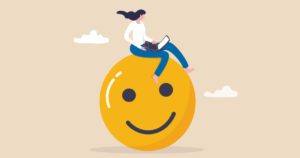
Below are some of the notes from a Change/Stress program I present.
When the pain of what you are going through becomes greater than the fear of change, you change … but I recommend you avoid most of the pain, embrace the change and adjust.
Change Steps
KNOW
Know what’s coming — change is always coming.
FEEL
Feel your emotions — don’t stuff your feelings.
ADJUST
Adjust quickly and ask for help. Don’t wait — learn the new way, and realize that it takes more guts to ask for help than it does to think you don’t need any help!.
1. Expect change; it’s part of life. (Flexibility is the most valuable trait a human can have.)
2. Anticipate change. (Be prepared for it and acknowledge that you will be okay. Change is the most natural part of life and you are hereditarily conditioned to survive it and benefit from it.)
3. Keep an eye on change. (Take notes…and learn from them!)
4. Adapt quickly. (Get in front of the pack, let your emotions out, and then just do the next right thing that moves you toward changing.) Example: Crazy Stephanie and the pile of dishes – just pick up the first dish. There is only one way to start, and that is to start.
5. Enjoy the benefits of change. (“There is something better out there!” It will be better for all of us. It might not feel that way at first; you have to go through 3 inches of problem to get to 100 yards of solution.)
The Big 3: Top Reasons Organizations Change
1. To become more efficient
2. To deliver better service
3. To stay in business in tough times
Many times, it’s all three.
To successfully manage change, we must believe that every change in our lives frees us for a better opportunity, a chance to grow and thrive and move our lives forward — a chance to learn to be more efficient, which makes us more valuable to the organization and those we work with. Change can bring fear. We either move past it quickly or live in the fear until it becomes part of who we are. As humans we have changed when we needed to, and we’ve looked out for each other. We have a brain that allows us to switch our belief system to overcome our circumstances. We are not slaves to instinct. Seventy-five percent of all thoughts are negative, yet we use them to protect us and then move into a positive direction. That is what it is to be human and why we are in charge of the planet. They say dolphins and killer whales are smarter; however, they are not so quickly adaptable. There is no one in this room who works for a killer whale.
The No. 1 cause of stress is knowing exactly what you are supposed to be doing and consistently doing something else. That means change can cause stress, but it also means that stress is a lot about what we believe. It’s our interpretation of that change that ultimately causes us mental and even physical problems.
Stress Steps
IDENTIFY
Identify where the stress is coming from — pinpoint the specific source. (You’re not just overwhelmed. What are you specifically stressed about?)
CONTROL
Control what you can and let go of what you can’t. (Some things you cannot control; work on what you can. Break things into bite-sized pieces you can handle. The best way to get a hold of your life is to let go.)
CHOOSE
Choose to see the stress as a signal that how you feel about things is the source of the stress. (If you love change, then it’s not stressful.) Consider: People jump out of airplanes for fun, yet are hospitalized because of worry.
1. Manage your time well. (You have 1,444 minutes a day to spend as you choose. Create a priority list of what has to be done today; being prepared dramatically reduces stress.)
2. Be present in the moment. (You can’t live in the wreckage of the future. Stop and be where you are!)
3. Pick off the negotiables from your plate. (Review your daily and weekly activities to see what you can pick off your plate.)
4. Reduce your vulnerability to stress. (Make sleep a priority. Do things you love after work. Breathe deeply and realize there is a difference between caring and worrying.)
5. See through the stress and identify the truth. (It’s our personal feelings about an activity that make it stressful. The truth is that how we feel about things can make us sick. Stop worrying and start doing!)
Doing more with less and taking on new tasks is how the human race has survived and progressed. We need to increase our productivity to compete, and it can overwhelm us if we let it. The key phrase is “if we let it.” One person’s “overwhelming” is another person’s “in the zone.” When you are busy, time flies — even if you are busy doing stuff you don’t like. You may notice some people are just stressed out in general, and some are so laid back you accuse them of laziness. Your belief system creates your experience. But how can you change a belief? Ask your self these questions:
1. Does what you believe make your life better?
2. Is it possible that something you truly believe might not be true?
3. Is it possible for a fact to become untrue?
4. Does being stressed and overwhelmed benefit you in some way?
It’s impossible to get through those questions without realizing the power that human beings have to overcome their circumstances. And they overcome not only to survive change and stress but to actually thrive and become more creative. It’s a fact that war, tragedy and limited resources have produced more innovation than a pile of cash, a bunch of geniuses and unlimited time. Okay, killer whales and dolphins, follow that!!






